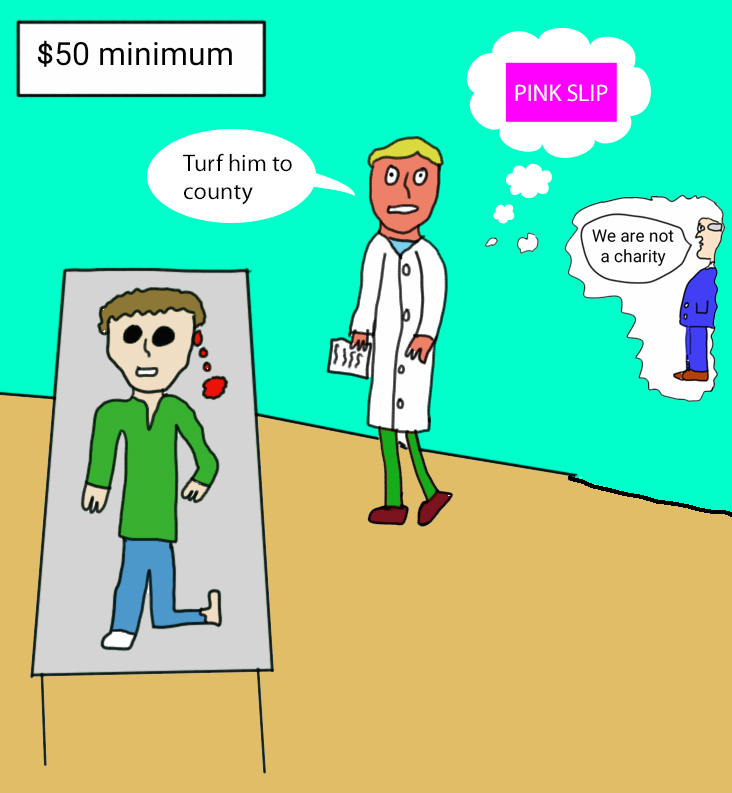by Craig Klugman, Ph.D.
This year has been a challenging one in the debate over what a U.S. health care system should look like. Front and center in this discussion sits the question of how do we pay for our health care—mandatory private insurance, single-payer, or free market approaches have all been touted and disparaged. This controversy is not new as laid out in a newly discovered Raymond Chandler short story. Chandler wrote “It’s all right—He only died” sometime between 1956 and 1958 after he had moved from the UK to California. The short piece was found in Chandler’s archives at the Oxford Bodleian Library. The story concerns an apparently “destitute patient” brought to a small private hospital after a hit-and-run accident. Although the patient needs care, the attending on duty recalls a recent lecture from the “millionaire donor” who said that the hospital was not a charity and that they needed to do more specialty care than general practice. Thus, the attending transfers the patient to County Hospital where he dies the next day. County lets the private hospital know that the patient might have been saved with immediate surgery and that he had $4,000 in cash on him.
 An author’s note to the story, penned by Chandler, is a commentary on the lack of justice in U.S. health care. Chandler writes that although the attending’s actions were legal, they were most certainly unethical. The patient might have died from his injuries, but not treating him because of a superficial judgment of the patient on his ability to pay is unprofessional. Chandler notes that a doctor needs to “be better than other men” no matter what the law says.
An author’s note to the story, penned by Chandler, is a commentary on the lack of justice in U.S. health care. Chandler writes that although the attending’s actions were legal, they were most certainly unethical. The patient might have died from his injuries, but not treating him because of a superficial judgment of the patient on his ability to pay is unprofessional. Chandler notes that a doctor needs to “be better than other men” no matter what the law says.
There is no nuance in this story; no wondering who done it as is found in most of Chandler’s novels and stories. He clearly puts the blame on the doctor who transfers an unstable patient out of fear that caring for this person in need would cost the hospital money and perhaps cost him his job. Having come from the UK, which began its National Health Service in 1948, Chandler offers a participant-observer’s commentary on the inhumanity of a system that legally allows one to turf patients elsewhere based on business decisions rather than medical ones.
The 655-word story is brief, direct, and pointed. It would be a strong piece to use in health humanities teaching.